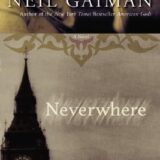
I said last time that I wasn’t going to debate the definition of “fan” here. But one of the most important defining characteristics of fandom is our shared language.
From founding fan Forrest J Ackerman on, fen have delighted in neologisms, and, of course, language helps to define a culture. We all use a great many terms that any reader of science fiction might be familiar with, not counting Forry’s very controversial sci-fi, but I’m speaking particularly of the words that fans use to describe ourselves and our activities. Or as Jack Speer wrote in the seminal Fancyclopedia I, “all expressions, except nonce-words, which have an esoteric meaning in fantasy fandom, and … other information, such as that on Esperanto, which may be needed to understand what fans say, write, and do.”
While some of the fan terminology codified by Speer in his 1944 guidebook has dropped out of active use, many of its words are still common, and even more are in use from its sequel, Fancyclopedia II, compiled by Dick Eney in 1959.
When I put together a fan lexicon in 1999, I found perhaps three dozen terms (including some not in very common use) whose definition would not have been obvious to fans in the 1950s and ’60s. A few more have been added since, in part because of written fanac’s shift to the internet, but others have fallen out of favor, so it evens out.
The work of documenting fan language and lore goes on at Fancyclopedia 3, now a wiki run by FANAC, Inc., which any fan can contribute to. Beware, however, of random fan lexicons that you might find on the internet. Over the years, some fen have found their fun by making up words and foisting them on unsuspecting lexographers.
Next time: Some terms every fan should know.











Hi, Frank! To get in on the secret, go to https://www.zeldes.com/fan/ditto/ditto14.html Scroll down to Spirits of Things Past One, April 2001, download the pdf, and you can read "Toward a New Fanspeak" and the whole list.
I often wish that whoever dubbed our subculture "fandom" and its denizens "fans" had found some other words. "Fan" within the microcosm is a term of art that has little to do with the dictionary definition, a fact that can get one into all kinds of arguments with people who don't get it.
Hey Leah! Two things:
1. Quit holding back on us! What are the "three dozen terms (including some not in very common use) whose definition would not have been obvious to fans in the 1950s and ’60s."? Dying to know.
2. The word "fan" sometimes drives me insane (even though it's inscribed on my Hugos). A mundane once told me straight out I came "from the fan tradition" (as if that were bad) and went on to criticize Kickstarter and other mass movements made by people who weren't "professionals." I was really taken aback – I have seen unbelievably awesome costumes at worldcon made by people who aren't making a dime, artwork, stories… unbelievably incredible stuff made by "non-professionals." It really irks me that the word "fan" means "not getting paid" (or "not getting paid enough") and elevates the importance of the dollar over the quality of the work. Errrrrrrrrrrrrrrr.
It's fixed now. Thanks for the heads up. Alas, someone bought the one copy there in the interim, but I daresay you know somebody who has one.
The link for "unsuspecting lexographers" seems to be broken. I am curious as to what you linked to.